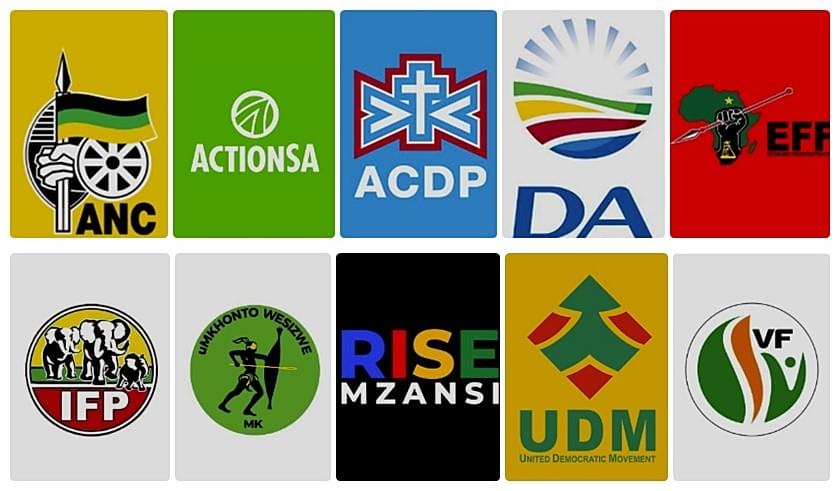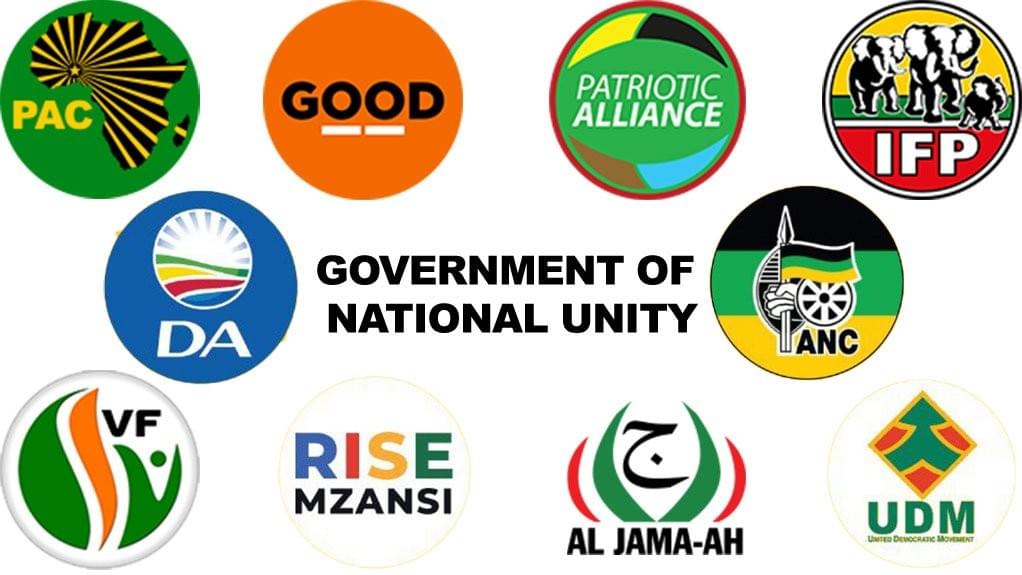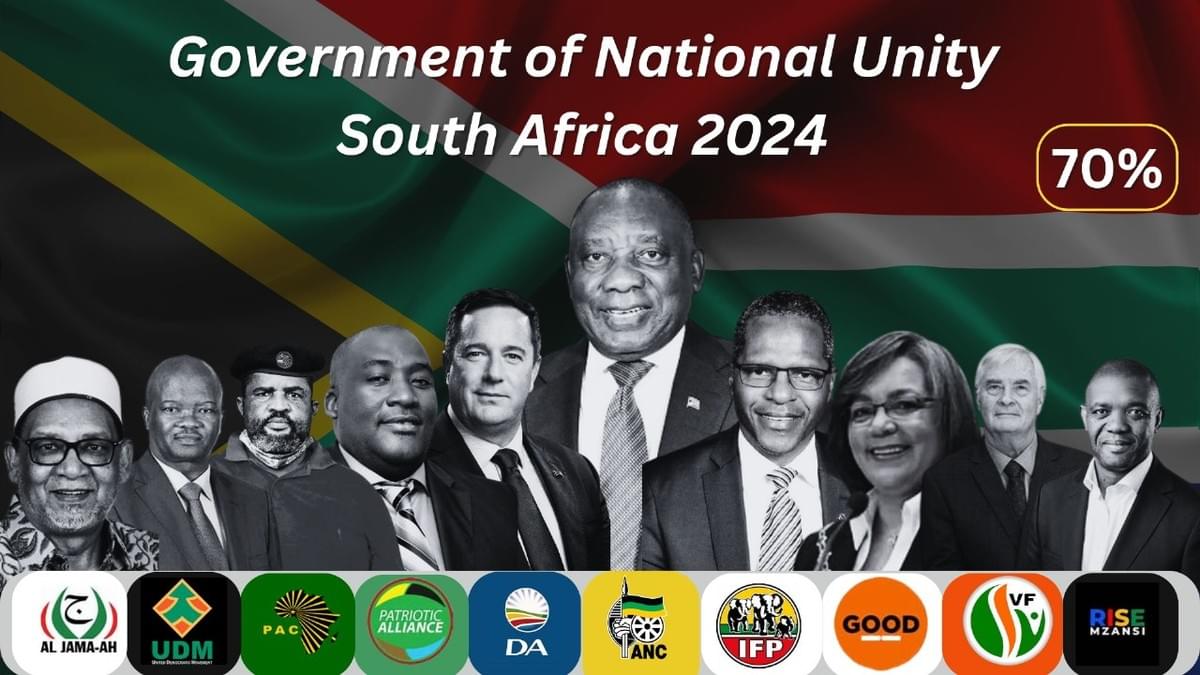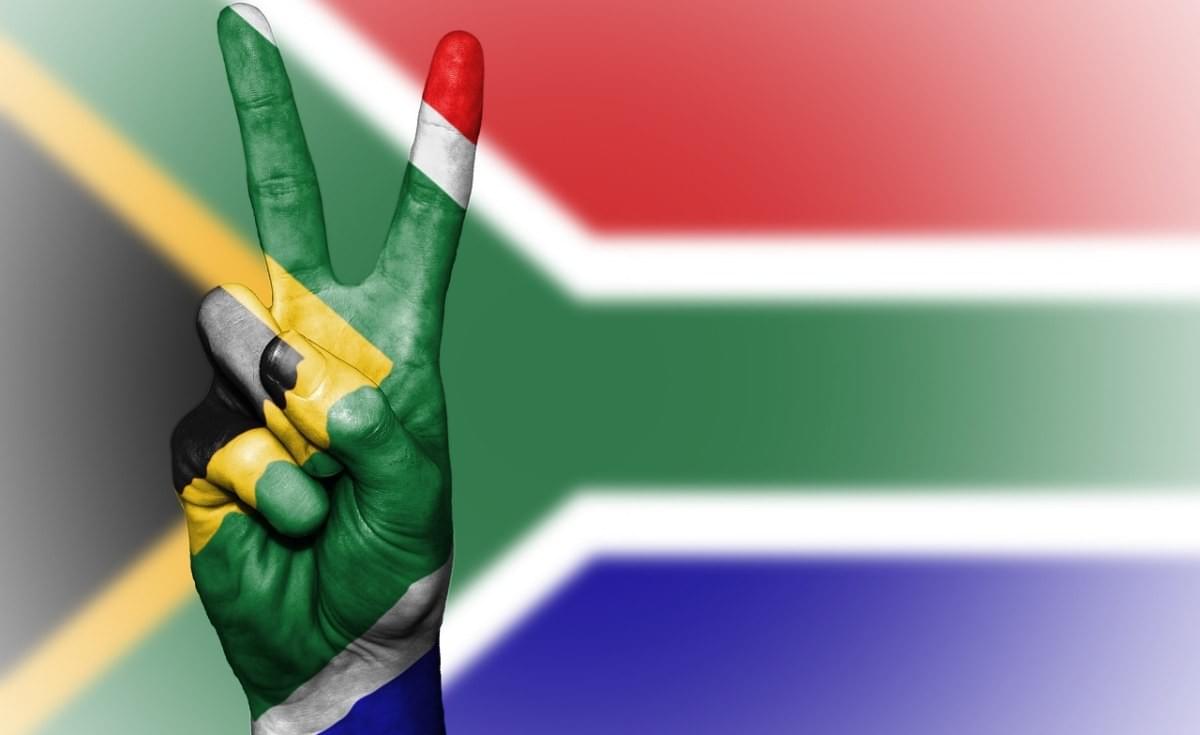
South Africa’s political landscape has recently transformed into a theater of the absurd, offering a spectacle that rivals the most outrageous soap operas. Grab your popcorn and your sense of humor as we dive into the latest shenanigans in the Land of Madiba’s political halls.
Yesterday I ran a poll and my blog readers have indicated that they absolutely love the politics, entertainment, and activism section, so here we go bangani—served with a heavy dose of satire to keep the stress at bay.
The African National Congress (ANC), our reigning political heavyweight since 1994, has been dethroned from its single-party dominance. Securing only 40.18% of the vote in the 2024 elections, they had to swallow their pride (and their egos) to join forces with—wait for it—the Democratic Alliance (DA), Inkatha Freedom Party (IFP), FF+, UDM, GOOD and the Patriotic Alliance (PA) in a Government of National Unity (GNU).
Yes, the ANC and DA, those sworn rivals, are now co-parenting South Africa’s governance.
Imagine Batman and the Joker deciding to share a Netflix account—utter chaos with a side of confusion.
The memes practically write themselves: DA leader John Steenhuisen sitting awkwardly in an ANC meeting, clutching a copy of How to Coexist Without Losing Your Mind. Meanwhile, ANC loyalists are experiencing an existential crisis. Who knew the path to unity would involve so much awkward small talk?
Once the stalwart voice of opposition, the DA now finds itself co-governing. The result? A collective identity crisis of epic proportions. One can only imagine the team meetings: DA Member 1: “Should we criticize the government?” DA Member 2: “But... we ARE the government!” Supporters are equally baffled. Do they protest against the government or send it a fruit basket?
Rumor has it, Steenhuisen’s New Year’s resolution is to master the art of nodding diplomatically while internally screaming.

On the sidelines, Julius Malema and the Economic Freedom Fighters (EFF) are munching on popcorn and heckling the coalition like it’s open-mic night at Parliament. Malema, clad in his signature red, labeled the GNU a “neoliberal jamboree” and has sworn to “keep fighting for the people” by shouting the loudest, marching the furthest, and posting the most incendiary tweets. His supporters, true to form, are here for the drama. Revolutionary rhetoric, after all, pairs beautifully with a good meme.
But wait, the EFF drama doesn’t stop there. Recent headlines have been ablaze with the resignation of Mbuyiseni Ndlozi, the party’s “People’s Bae,” who has officially left the parliamentary building. Adding to the chaos, another EFF heavyweight, Yazini Tetyana, has also resigned as MP. Malema’s response? A fiery statement, of course, paired with the unshakable belief that the red berets will march on, regardless of who stays or goes.
Just when you thought Jacob Zuma had bowed out of politics, he reappears like a soap opera character returning from the dead. Enter stage left: uMkhonto weSizwe (MK), Zuma’s new political party, named after the ANC’s former armed wing. Despite the scandals, the court cases, and that infamous firepool, MK managed to snatch 14.58% of the vote, proving that Zuma’s charm (and perhaps a few dance moves) remains irresistible to many.
It’s the political equivalent of your favorite childhood band reuniting. Nostalgia hits hard, even if the lyrics don’t quite make sense anymore. Anyway, gwaza Mkhonto gwaza!!!
The IFP, long a steady presence in South African politics, has risen to national prominence once again as part of the GNU. With years of experience under its belt, the party seems poised to bring a calm, no-nonsense approach to the coalition table. Their leaders, always prepared, are navigating this new chapter with quiet determination. If anything, the IFP may just prove to be the glue that holds this patchwork coalition together. A round of applause for consistency and level-headedness in a sea of political chaos!
Meanwhile, the Patriotic Alliance (PA) is living its Cinderella moment. Often the butt of political jokes, the PA now finds itself sitting at the adults’ table. Rumor has it, they’re pinching themselves daily to ensure this isn’t an elaborate fever dream. Whether their newfound power leads to actual governance or just endless selfies with parliamentary plaques remains to be seen.
And then there’s ActionSA, South Africa’s self-proclaimed disruptors of the political scene, continues to market itself as the party of "new politics." But let’s be honest, the real brains of the operation are Michael Beaumont and John Moody, working behind the scenes like an impeccably dressed duo in a buddy-cop movie. Meanwhile, Herman Mashaba seems to have taken on the role of charismatic figurehead, dazzling the cameras with soundbites and a smile.
Their refusal to join the GNU has raised eyebrows—weren’t they adamant about never cozying up to the ANC? Now, with whispers of newfound camaraderie between the two, one has to wonder: who’s fooling who here? Still, their sharp marketing game ensures their billboards remain prime selfie spots, even if the politics behind them feel like old wine in a shiny new bottle.
The irony of their “new politics” mantra is not lost on anyone. In reality, it’s the same game with fancier marketing. Their refusal to join the GNU has only added to the confusion—after all, aren’t they buddy-buddy with the ANC these days? Joburg? Pretoria? Enklek, zikhiphani ngaba? But hey, at least their billboards look good.

Speaking of underdogs and wild cards, let’s not forget Rise Mzansi. This fresh-faced contender has burst onto the political scene with the enthusiasm of a first-year student union rep. They’re full of ideas, ambition, and an endless supply of hashtags.
Their rallies resemble music festivals, complete with catchy slogans and plenty of Instagram-worthy moments. While their youthful optimism is admirable, one can’t help but wonder: is this the dawn of a new era or just a political phase? If nothing else, their speeches are worth a listen—think TED Talk meets halftime pep rally.
Whether Rise Mzansi becomes a lasting force or fades like last year’s viral meme, they’ve certainly made their debut with style. This shiny new entrant in the political arena is trying to position itself as the country’s savior, riding on the coattails of youthful optimism and promises of a better tomorrow. Their rallies may look like music festivals, with their speeches peppered with enough buzzwords to make even the most seasoned politician jealous. Whether they’re here for the long haul or just a fleeting political crush remains to be seen.
The United Democratic Movement (UDM), led by the ever-determined Bantu Holomisa, continues to hold its ground like a wise old uncle at a family braai—steady, slightly grumpy, but always ready with a clever quip. Their voters appreciate the consistency, even if their presence sometimes feels like a comforting throwback to a simpler political era.
Then there’s the Freedom Front Plus (FF+), who’ve turned their niche appeal into a surprisingly resilient political base. While their message doesn’t resonate with everyone, you can’t deny their ability to hold their own in the political fray. If anything, they’ve mastered the art of standing firm, like a determined toddler refusing to share their toys.
GOOD and Al Jama-ah also deserve a mention, proving that even smaller players can make waves—though it’s hard to say whether those waves are making ripples or just splashes in a kiddie pool. GOOD’s Patricia de Lille continues her crusade with the conviction of someone who believes her party’s name is a self-fulfilling prophecy. As for Al Jama-ah, they often feel like the friend who quietly joins a group project but never gets around to presenting.
They’re there, they’re trying, but sometimes you wonder if even they know what they’re up to. GOOD’s Patricia de Lille continues to fight the good fight, though some might argue that her party’s name is the punchline itself. Al Jama-ah, on the other hand, balances political aspirations with a sense of quiet purpose, often flying under the radar but never entirely out of the picture.

And now for the bonus round: BOSA, the African Christian Democratic Party (ACDP), and the African Transformation Movement (ATM). BOSA (Build One South Africa) is led by Mmusi Maimane, who still manages to exude motivational-speaker vibes every time he talks about fixing the country. It’s like every campaign event is an episode of "TED Talks: Township Edition."
You can almost hear the crowd chanting, "Yes, we can!"—though no one’s quite sure what they’re saying yes to. Meanwhile, the ACDP remains steadfast in its quest to bring divine intervention to Parliament, often doubling as a prayer meeting when debates get heated.
Their commitment to biblical values is admirable, but one can’t help but wonder if Moses might’ve been better equipped to part the sea of coalition chaos.
And the ATM? Well, they’re like the party equivalent of a conspiracy theory YouTube channel—always buzzing with energy, a little mysterious, and leaving you scratching your head more often than not. Their slogan might as well be, "We’re not mainstream, and that’s okay."
Bangani kuningi, ku bird, ku tricky, ku tense and ku WOW!!! Let's laugh together.
Happy reading bangani.

